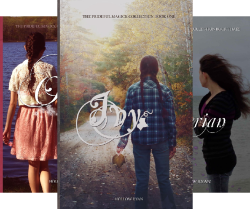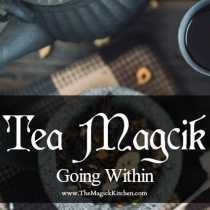
Pop culture workers spend countless hours getting to know the stories, worlds, and characters of our favorite media. We learn their energies so well that we can incorporate them into our magick with ease. Our fandoms become a part of the very fabric of our magickal practice. Sometimes, as we’re merrily working away, the creators dare to fundamentally change our favorite bits of pop culture in a way that no longer works for us. What do you do when good fiction goes bad?
There are benefits and risks in working with living fiction: stories that are still unfolding in their medium. The primary benefit to working with living fiction is the liveliness of its energy. A story that is still unfolding has momentum and power that static fiction just can’t match. If the fiction is popular, think the current Marvel movies or Star Wars, then you have not only the energies of the stories themselves but also the popular momentum generated by advertising, merchandising, fan buzz, etc. Living media is huge part of popular culture and pop culture workers can use all of that madness to their advantage. The biggest risk with living media is that its energies can change swiftly and profoundly: characters can reveal hidden details that make them something utterly different, beloved characters can suddenly die, mysterious siblings can appear from the ether (I’m looking at you Buffy and Sherlock), plots can suddenly diverge in ways wholly inconsistent with everything you loved about the media in the first place, the creator has just been revealed as a horrible person in a way that taints their creations...the list can go on forever. Fear not, all of this can be addressed.
Your favorite fiction has just taken a hard left turn off a cliff, what do you do? Embrace version control - the concept of working with a specific version of media. Lots of amazing media comes in different versions. For example, Superman exists in multiple comics, movies, television, books, etc., all of which portray a different version of the character and the universe he inhabits. If you want to do pop culture magick with Superman the first thing you need to decide is which version of him you want to work with. (See Who's Your Doctor for more) This same concept applies when a character, story, or world you’re working with changes. You can choose to work with select portions of your pop culture media. Only like a character in seasons 2-4 of a show? Only work with that version of the character. Want to pretend that a book series ended at book five? Go for it. It’s your magick and you get to choose what you work with.
Version control can most easily be executed through a statement of intent. It’s always a good practice to have a firm statement of intent before doing magick; to say what you’re going to do, why, and exactly how. During a statement of intent you can specify the precise version of pop culture energy you’re calling upon. For example, in casting a time management spell I might call on Hermione Granger, specifically from book three of Harry Potter. In book three Hermione had a time turner to help her deal with her overloaded schedule and was able to accomplish all of her goals while overcoming many challenges. This particular brand of time management skill isn’t referred to in any other book, so being specific about which version of Hermione, with which particular skill set, would be beneficial to the spell. Similarly, if one were to call on Black Widow for personal strength and maneuverability it might be beneficial to specify that you want to work with the kickass version from The Winter Soldier rather than the damsel in distress that got locked in a castle in Age of Ultron. By specifying a precise version of your fiction, you can work with the elements that support your magick while largely ignoring the problematic bits.
It is possible to take version control too far. One of the biggest benefits of working with pop culture magick is the vast amount of energy that pop culture media possesses by virtue of other fans and the general public. When you choose a particular version of a piece of media you can cut off your access to some of the energy that the rest of that media contains. If you only want to work with a version of a tv character that appeared in one episode (think dream, bespelled, or hallucinated versions of characters), you’re not going to have access to the vast energetic stores of the normal version of that character. Rather you’ll only have access to the energy invested by the creators and fans in that particular slice of the character - and not everyone will love it as much as you do. While potentially limiting, strict version control allows a practitioner to work with whatever aspects of pop culture that truly resonate with them, even when it’s problematic.
A more extreme form of version control would be to choose a slice of pop culture fiction and customise it through your own creative works, e.g. fanfiction, fanart, mental storytelling, etc. We all have certain stories we wish had gone differently or characters we’d have liked to see make different decisions. If you want to do magick with one of these alternate (AU) version of a story or character you absolutely can. By writing out or just imagining alternate stories for your favorite character or world you can, in essence, create a thoughtform of that alternative and work with it magickally. The more you flesh out and work with your AU the more energy will be woven into it and thus be available for further workings. This carries the same limitations of mass media energy as working with very specific versions of characters and stories. However, if you write fanfiction or create fanart you have the ability to share it with other fans and potentially pick up the energy they put into your works. Further, the ease inherent in working with (mostly) your own creation can outweigh the lack of mass fan energy in terms of magickal efficiency. This form of pop culture magick is limited only by your own imagination and willingness to work outside the box.
The next time your favorite bit of pop culture media makes a change for the worse, fear not! Take a deep breath, calm your mind, decide which version of that media you want to work with and, at least as far as your magickal practice is concerned, ignore the rest of it. Allow strict version control or the creation of your own alternate storyline to fuel your workings with just the energy you need and none of the angst you don’t. If what truly resonates with you is pre-movie Galen Erso, young Scrooge McDuck, Dark Willow, or movie Rainbow Brite then that’s exactly what you should do. Your magick is just that: yours.























